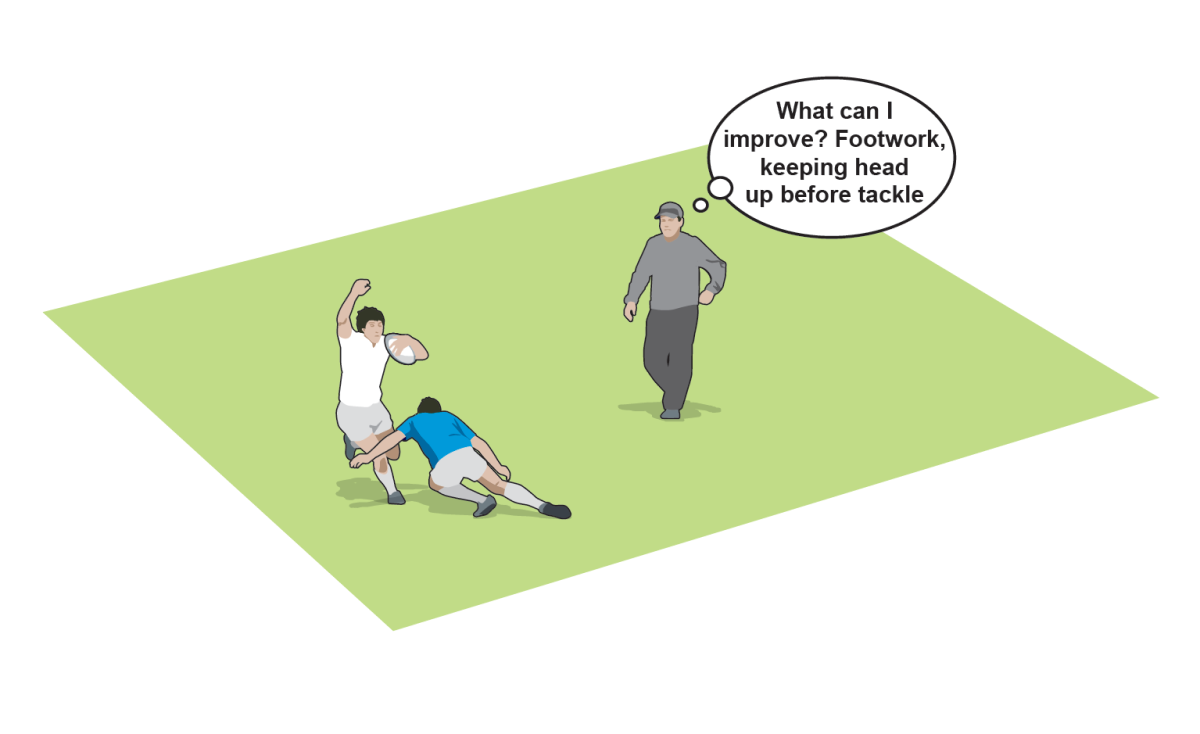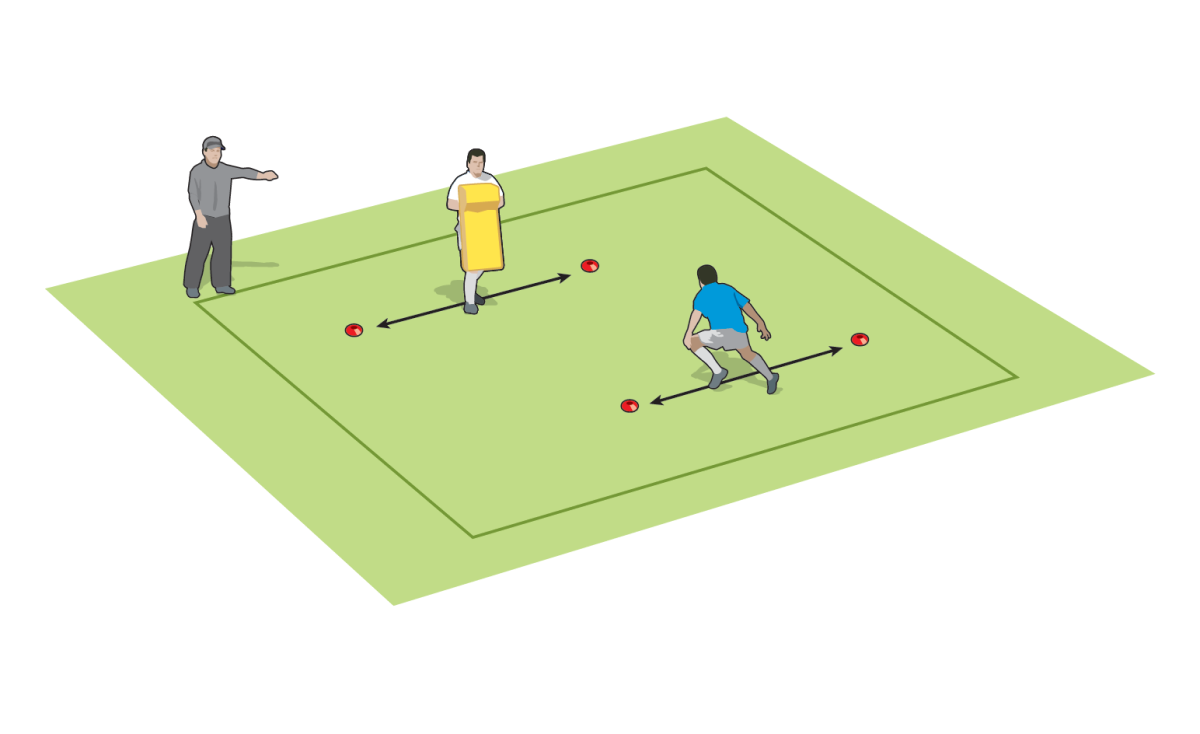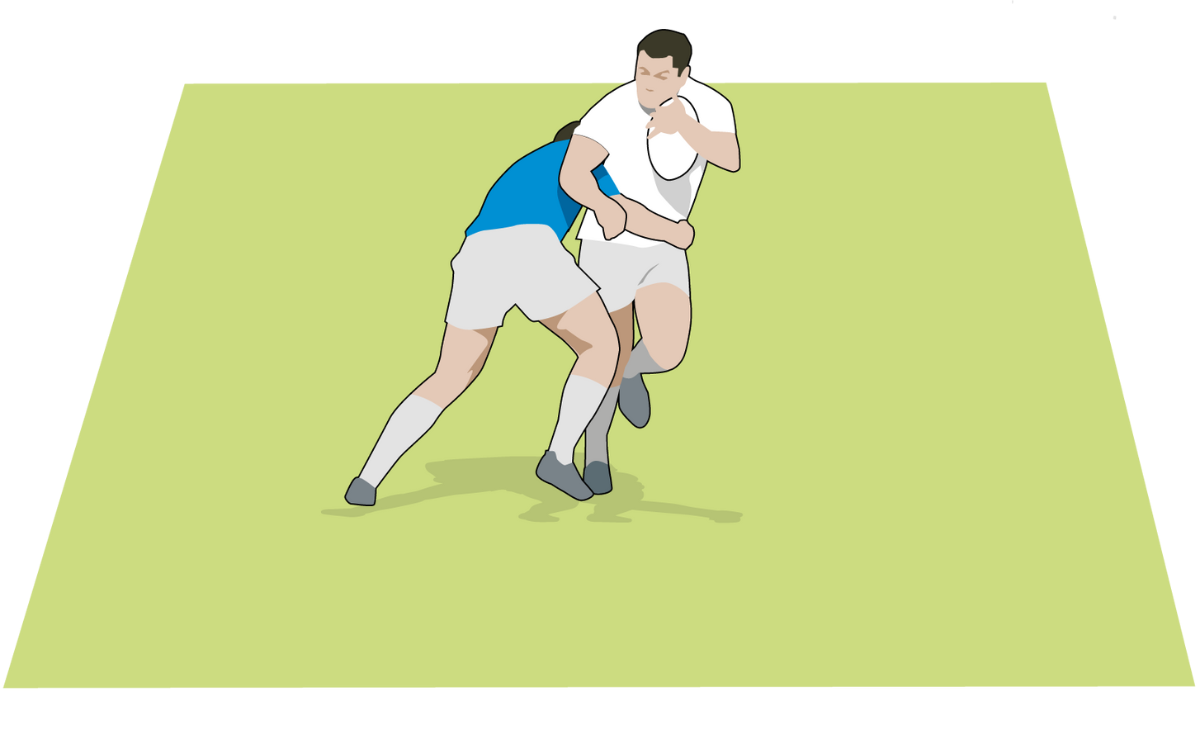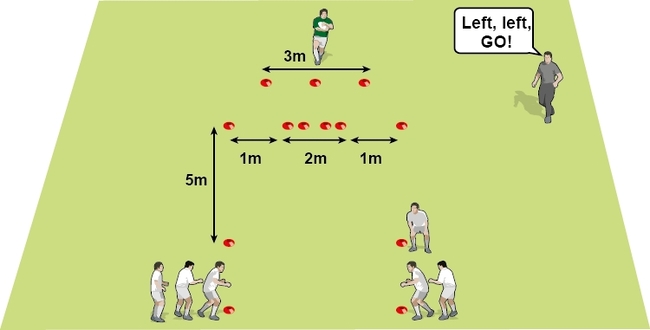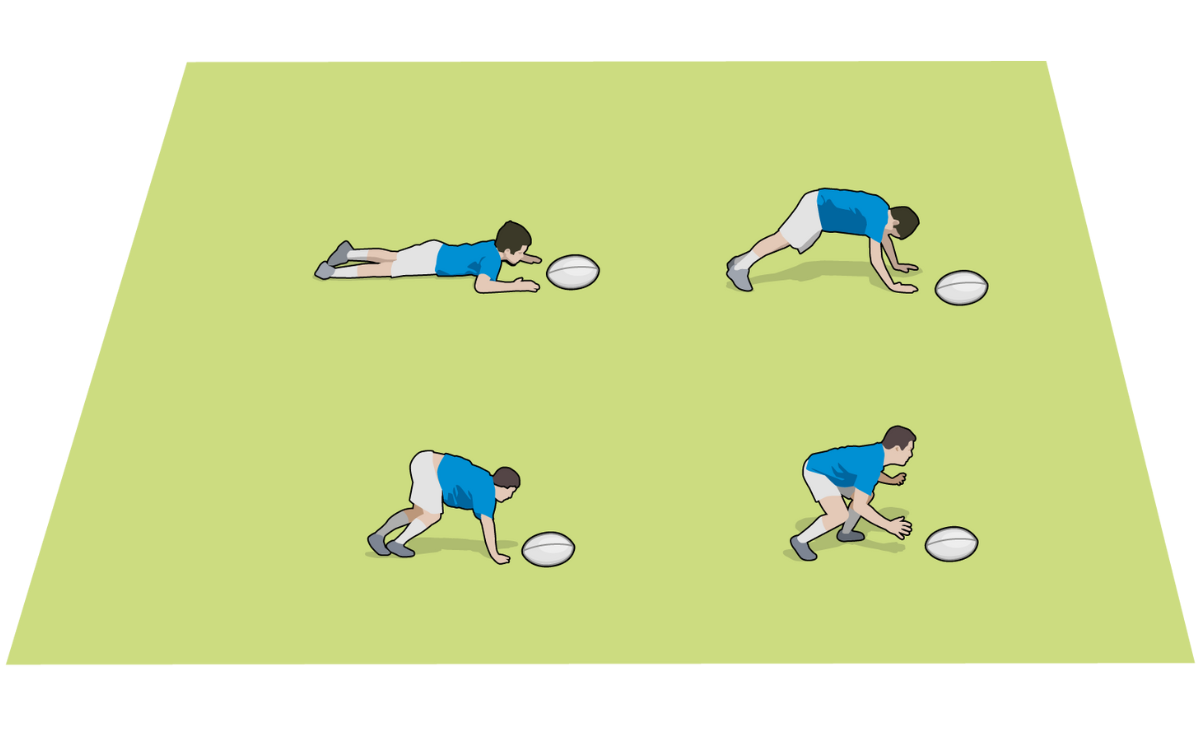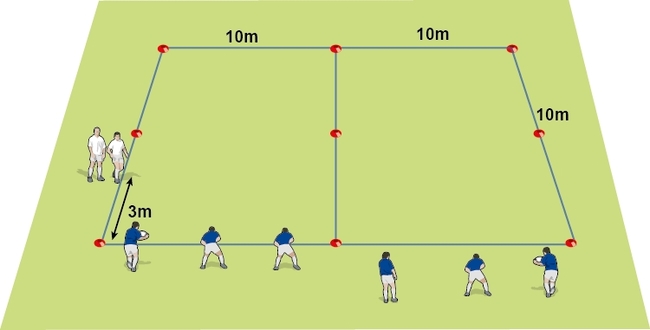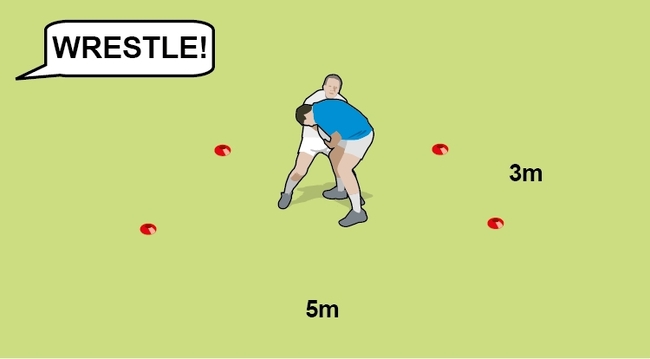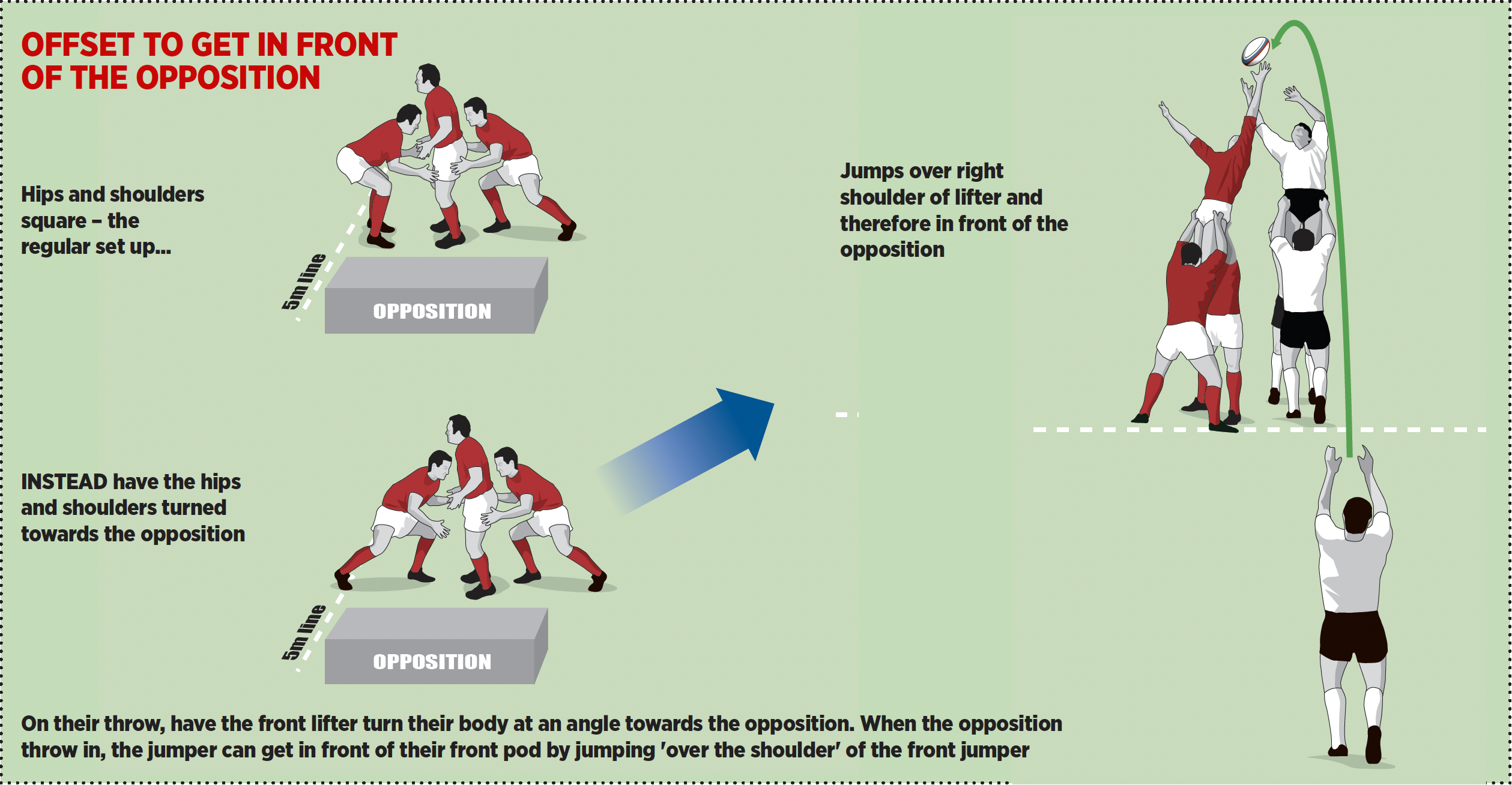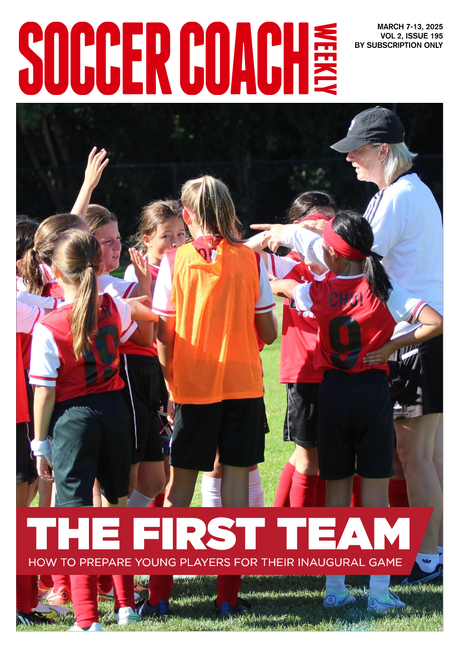Tackling training: the defence coach's guide
How to identify the right areas to improve your players’ defensive capabilities. By Queensland Reds head coach and former Ireland defence coach LES KISS.
When I look at the tackle, I am predominantly outcome-driven. If it works, that is more important than if all the technical processes have been ticked off.
That does not mean I do not work on the processes, like tracking, head position, grip or footwork through the tackle, to ensure good technique habits are built. Rather, I have a ’focused process’ approach, as opposed to being ’process focused’.
’Focused process’ means I look at what is important for that player to improve on or indeed enhance a strength in their tackling. How can they add value to their tackling?
I might say to a player that they are dropping their eyes too early before the tackle, so compromising their capacity to adapt to the footwork of the ball carrier.
If that is the case, we will run a drill to work on that process. I may have also observed other technical elements that are not theoretically correct.
CHECK THE OUTCOME
Process-focused training
Related Files
- A pad holder moves from side to side, and then forward
- The tackler comes forward, adjusting their feet to make a strong contact
Balancing process with outcome
Being ’focused process’ in my approach demands that I assess the most important one or two elements, rather than trying to totally fix all the theoretical elements of the player’s tackle, which is the danger of being too ’process focused’.
For less-experienced players, I am more process driven. They are still learning the basics.
Even if I am working hands-on with players, I will consider carefully the level of detail I offer them. Some players can handle a lot of detailed information and still execute and perform effectively. Others will lose their effectiveness if they are inundated with too much detail at the one time.
A critical skill for effective coaching is understanding on an individual basis how much detailed information you should offer without compromising effective processes and outcomes.
In other words, knowing what to leave out at any given time in your coaching delivery, message, assessment or feedback is about being able to focus on the most important things that matter in achieving better outcomes.
“Knowing is not enough; we must understand. Willing is not enough; we must do”
Bruce Lee
I like this mantra because, as a coach, I have a good knowledge of the game and believe in what I do. But, more importantly, it is the players who must believe that they can deliver in the heat of the battle.
A key challenge for a coach is to turn knowledge into effective execution and performance by developing clear and concise understanding from the players in what they need to do, how to do it, when to do it and why they do it.
Newsletter Sign Up
Coaches Testimonials

Gerald Kearney, Downtown Las Vegas Soccer Club

Paul Butler, Florida, USA

Rick Shields, Springboro, USA

Tony Green, Pierrefonds Titans, Quebec, Canada
Subscribe Today
Be a more effective, more successful rugby coach
In a recent survey 89% of subscribers said Rugby Coach Weekly makes them more confident, 91% said Rugby Coach Weekly makes them a more effective coach and 93% said Rugby Coach Weekly makes them more inspired.
Get Weekly Inspiration
All the latest techniques and approaches
Rugby Coach Weekly offers proven and easy to use rugby drills, coaching sessions, practice plans, small-sided games, warm-ups, training tips and advice.
We've been at the cutting edge of rugby coaching since we launched in 2005, creating resources for the grassroots youth coach, following best practice from around the world and insights from the professional game.
